
NPIP Certification
When it comes to keeping backyard chickens, there are lots of decisions that a keeper needs to make. In addition to breeds, coops, whether or not to have a rooster, there is NPIP certification. In the post I will detail what NPIP Certification is and if it is something that you want to do for your flock.
What is NPIP Certification?
In short NPIP stands for National Poultry Improvement Plan. The NPIP is a voluntary program overseen by the United States of Agriculture (USDA) and managed by each state.
The program monitors flocks and hatcheries for a variety of serious diseases that can devastate chicken populations, creating serious problems for the poultry industry or backyard chicken enthusiasts.
The NPIP program was first established in 1935 as a way to eliminate Pullorum, a disease that devastated the poultry industry in the late 1920’s. The program was later refined to include backyard chicken keepers and test for other serious diseases such as Salmonella Pullorum, Salmonella Gallinarum, Salmonella Enteritidis, Mycoplasma Gallisepticum, Mycoplasma Synaviae, Mycoplasma Meleagridis and in 2006 Avian Influenza
NPIP Certified hatcheries adhere to a set of established standards that ensure that the birds sold are free from diseases listed above. Testing involves taking blood samples from their flocks, swabs from their bird’s throats, adhering to sanitation and biosecurity procedures.
Hatcheries are required to test their flocks for the diseases, included in the certification set out by the USDA. Testing procedures can vary from state to state, most require testing for Avian Influenza (AI) and various forms of Salmonella. Typically, a cross selection of 300 birds will be tested. If a hatchery has less than 300 birds, than every single bird is then tested. Hatcheries must re-test annually to keep their certification up to date.
So what does this mean for the backyard flock owner?

As a perspective backyard chicken keeper looking to start or add to an existing flock, it is best to buy from a breeder that is NPIP Certified. Most hatcheries are certified, there are a few out there that are not. Some hatcheries will list on their webpage that they are NPIP Certified along with their certification number. If you do not see where they are NPIP certified just ask. Any hatchery that is NPIP certified will readily and freely prove to you that they are certified and will give your their NPIP certification number. If they are certified, you can be sure that you are buying from a reputable breeder or hatchery that holds animal husbandry to the highest standard.



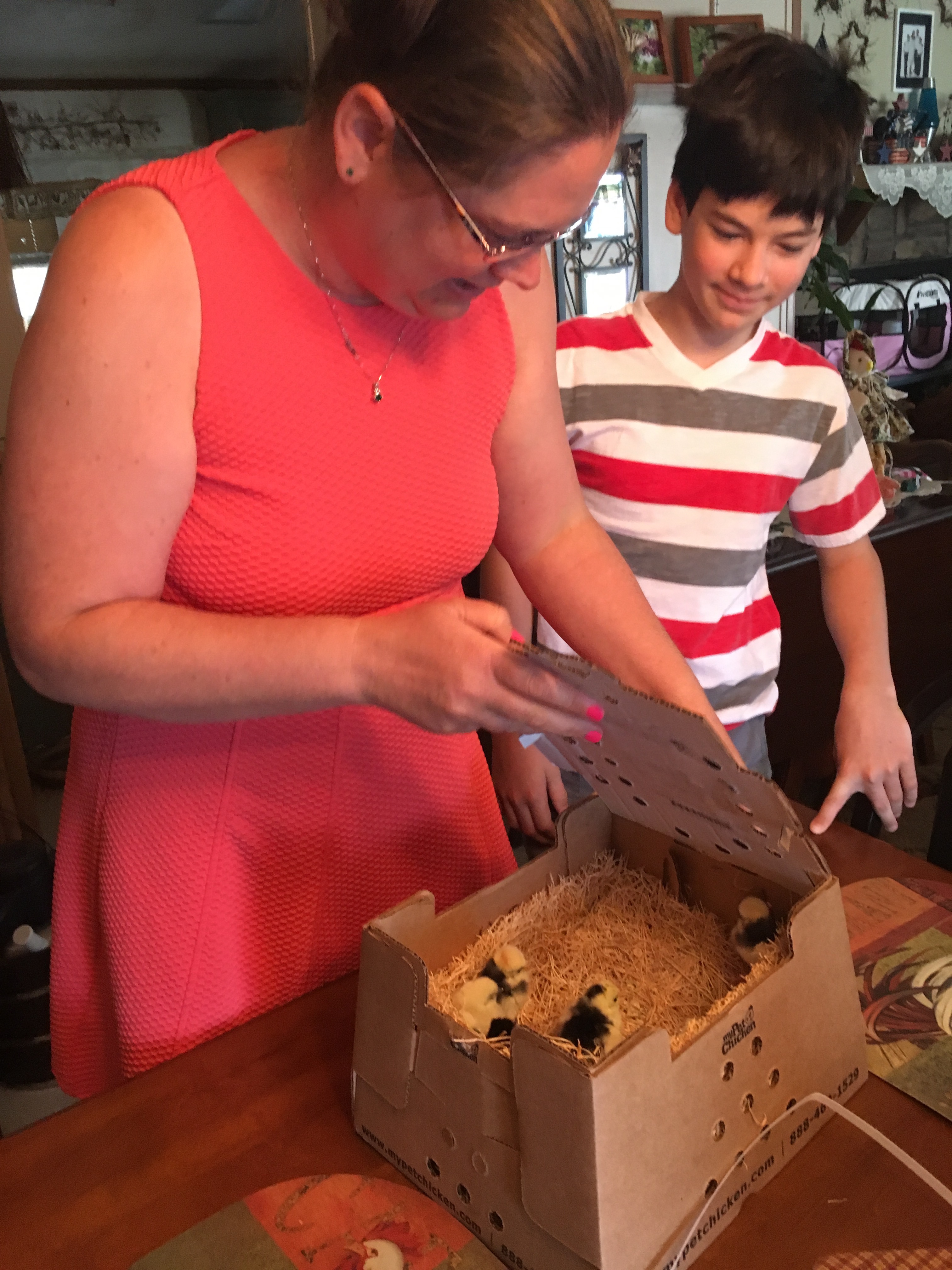

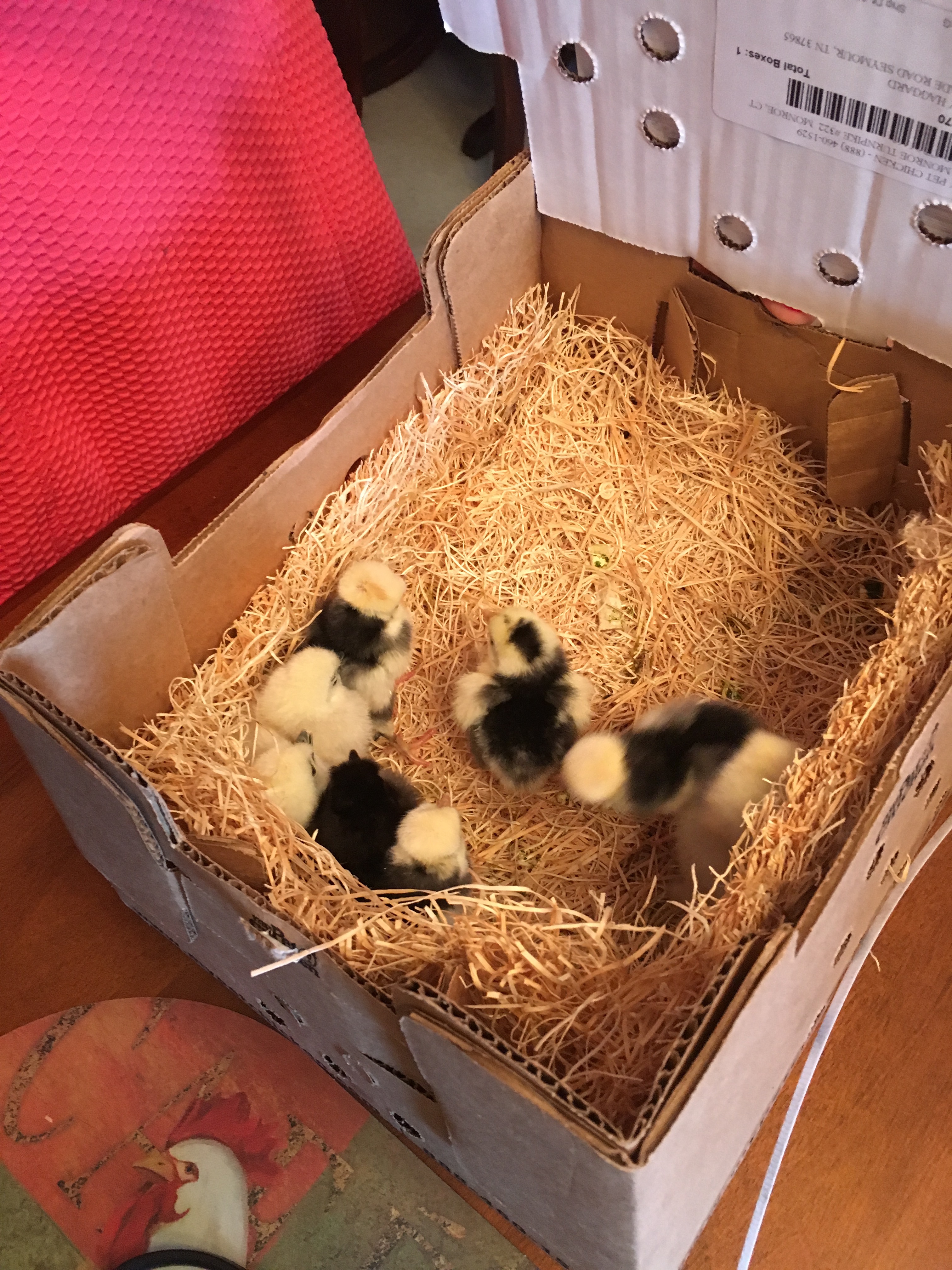


As a backyard chicken keeper, if you plan on breeding, selling chicks or chickens it is a good idea to get your flock NPIP Certified. Not only are you ensured that your flock is healthy and selling healthy birds, but it offers you a hedge of protection should the birds you sold be reported sick. If there is an investigation into the origin of the birds sold, you will have a hedge of protection proving that your flock is NPIP Certified. That’s not to say that just because a source is NPIP Certified that birds cannot get sick. It will reveal in the event of an investigation that your flock is healthy and gets routine health inspections documented by your State Veterinarian.
It also gives you a peace of mind as well. For example, if there is an outbreak of AI in your area, a State Veterinarian will be dispatched to your home to test your birds for AI. Some feel that registering your flock and having them NPIP Certified relinquishes too much control to “Big Brother”. This is where the individual keeper’s preference comes into play. I personally have my flock NPIP Certified. Not only do I find it comforting that should AI be detected in my area, the USDA would be on it testing my birds. But if I sell any chicks or adult laying hens, I am confident that I am selling healthy birds and have the certification to back it up.
How does an owner certify their flock?
If you decide that NPIP certification is something that you want to do, getting them certified is very easy. Simply look up your State Veterinarian on the web or in the phone book and give them a call. Simply tell them that you are a backyard chicken keeper and that you want to have your flock NPIP certified.
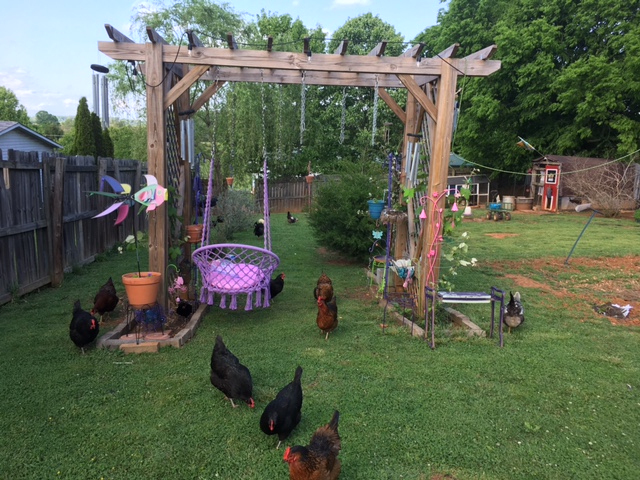
At that time your information will be recorded, and you will get a call from a USDA agent in a few days to schedule a testing date. If you have a large flock, say 50 birds or more, plan on taking the day off work to have your flock certified. The agents will literally test every one of your birds individually.

They will take a small sample of blood and swab their throats. You as the keeper will be responsible for retrieving each bird, bringing them to the inspectors, and keeping track of who has been tested. Once tested each bird will be issued an ankle bracelet with a number on it, each number is specific to each bird and is logged into a computer. This number is their state ID. Should you need to call the State Veterinarian at a later date about a bird you will need to reference the number on their ankle bracelet.
This is another perk of having your flock NPIP Certified. If you have any questions about health or other illness related questions, you have someone to call. Many local Vets will not see “livestock” in their office. They may be able to answer some general questions but as for advising you in detail they may be limited. The State Veterinarian will know how to answer or direct your questions relating to your flock to qualified sources.
In my early days, I called my local State Vet several time to clarity issues or find treatment direction for basic illness. They were an amazing resource that I readily used. If you call with a suspicious illness such as symptoms of AI, an inspector will be dispatched to your property to test your birds. If you have suspicious deaths (you do not know the cause of death) they will conduct a necropsy or an animal autopsy on the deceased birds to determine what took the animals life. It will then be determined if this is something to be concerned about in relation to the rest of your flock. They are an immense source of information and guidance if you find yourself in a situation where you need expert advice or help.
How much does it cost to get your flock NPIP Certified?


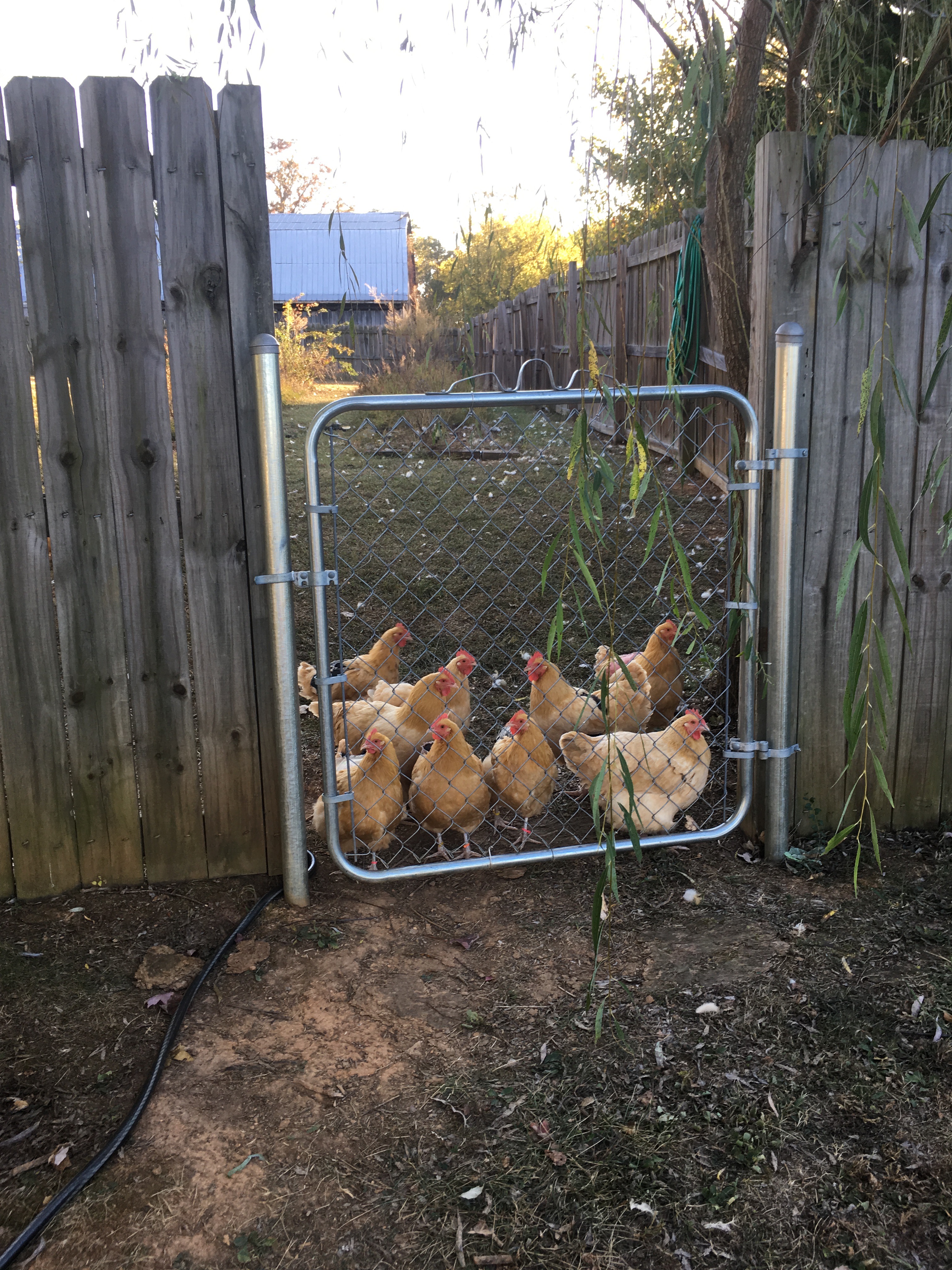


The final aspect the of NPIP Certification that I will touch on is how much it costs. The cost depends on your state, each state will have different rates and procedures of how they go about conducting a NPIP certification. In my state of Tennessee, our State Vet charged $25 for an inspection and certification. It is in the best interest of the state that keepers certify their flocks, so they try to make it simple and affordable.
Each year or every other year depending on your state, your flock will be up for renewal. Each year the flock owner is required to pay the nominal fee to renew their NPIP Certificate. The fee in my case was rendered at time of service directly the inspectors after they tested all my birds. Several days after the inspection takes place, you will receive a card in the mail with your issued NPIP Participant #. This is for your records or anytime you need to prove your NPIP status. Below is an old card that I received for a NPIP Certification several year ago.
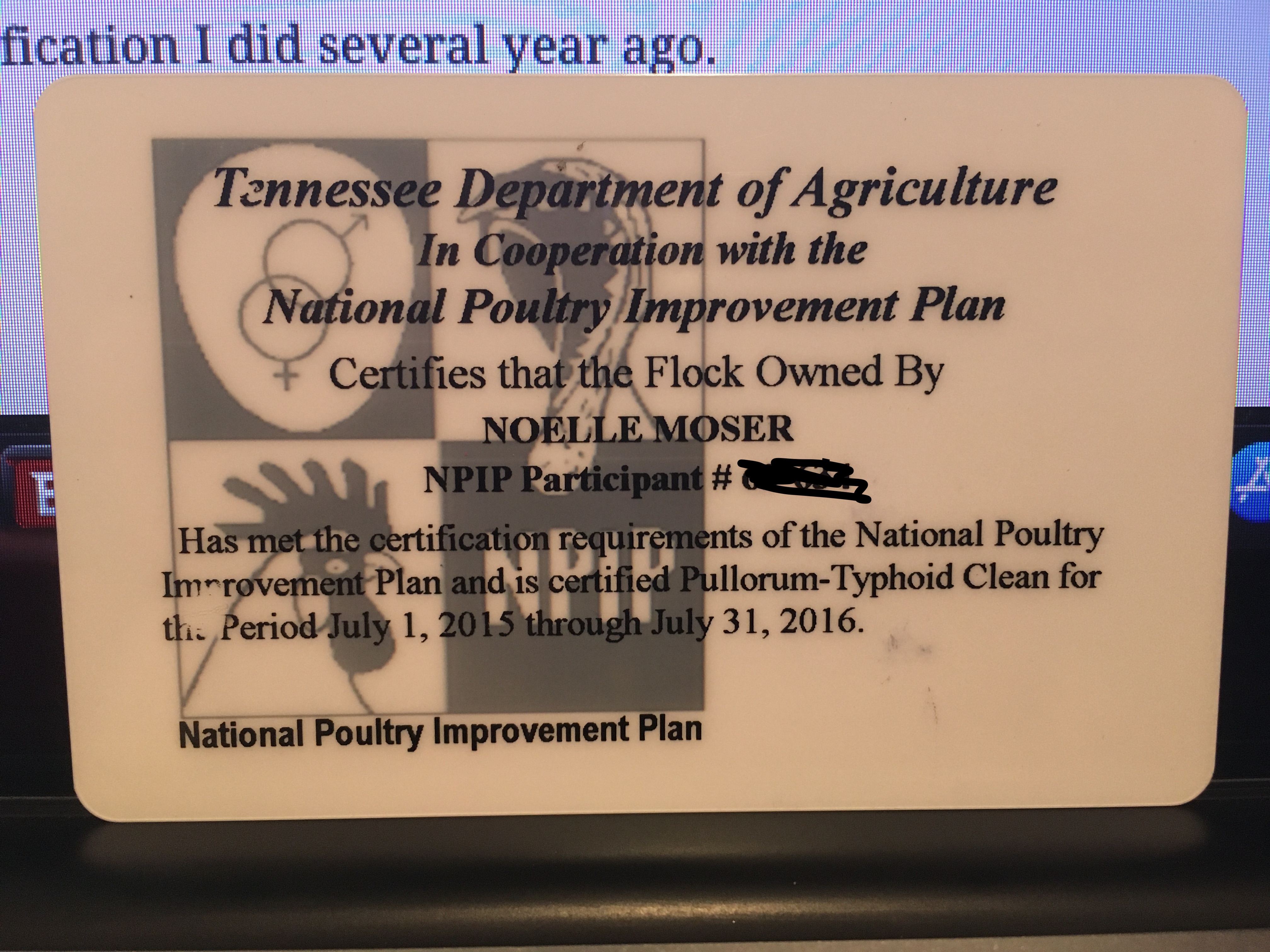
I have never regretted getting my flock NPIP Certified. Although I am not an active breeder, I find value in knowing that my flock is healthy. I also found the NPIP certification process valuable in learning how to conduct my own health inspections on my birds. The most important aspect that I value from the NPIP process is the network of contacts. There is a peace of mind knowing that I am only a phone call away from people who are knowledgeable, should I need to tap into that resource.
I hope that this post has helped answer some question relating to NPIP Certification. If you have any questions, please feel free to leave me a comment. You can also drop me a line at kuntryklucker@gmail.com.
I am a published author, multi-disciplinary writer and blog contributor. If you like this blog, please visit some of my other sites.
Knowledge of the Spheres – Exploring the Celestial Spheres!
Coffee and Coelophysis – A blog about Dinosaurs!
Chicken Math University – Adventures in Homeschooling
If you like this post, peck the subscribe button. As always, thanks for reading. Till next time keep on crowing!
~ The Kuntry Klucker Crew ~
